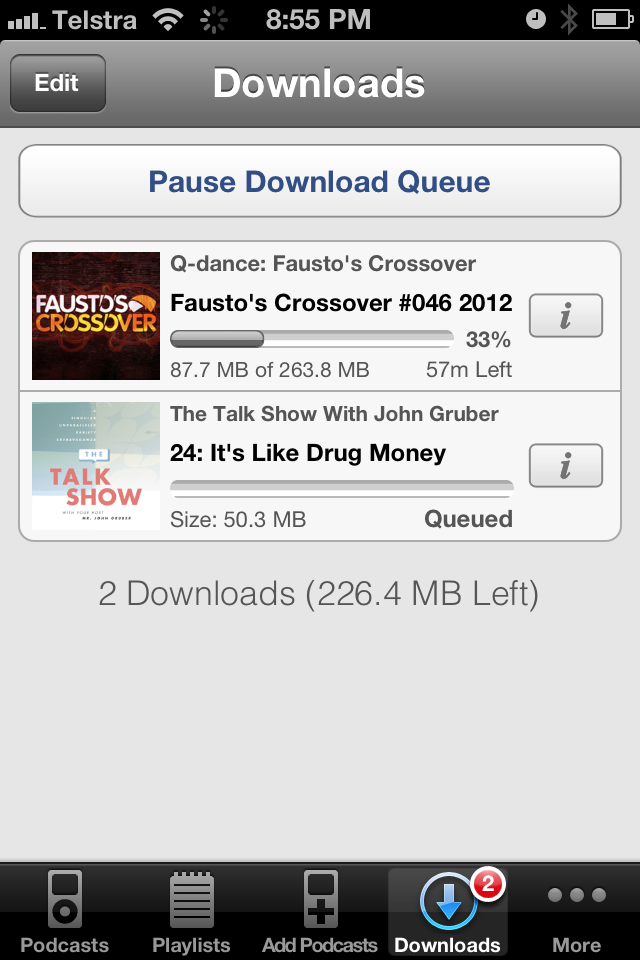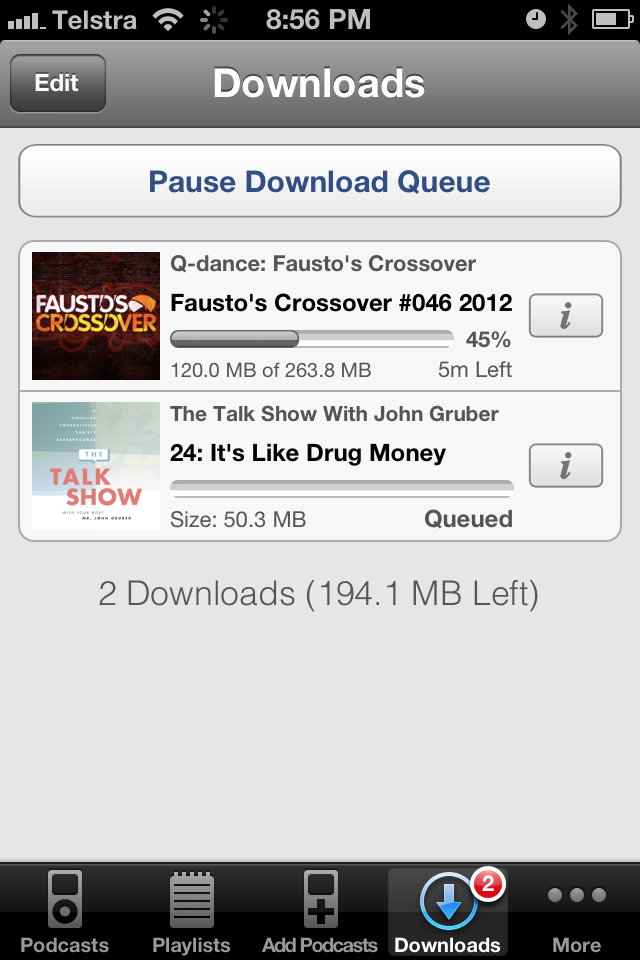Speed Up Slow Downloads on iOS with a Proxy or CDN
Whilst developing the Radiopaedia iOS app I ran into the problem of very slow download speeds within the app. The app has packs of content available for purchase and download. The download speed was fine in the simulator but on the device it was painfully slow1. Both the Mac running the simulator and device were connected to the same Wi-Fi network. Profiling the code didn’t reveal any issues either.
Some searching revealed people complaining about YouTube videos downloading faster over 3G than Wi-Fi. There were a number of theories and proposed fixes, including people seeing faster rates when downgrading their access point to 802.11b2. I read one particular article (that I can no longer find) that said the power management in the iOS Wi-Fi stack interfered with download speeds when communicating to a high latency destination over a high speed Wi-Fi connection. For example YouTube servers in the US from AU3.
With this in mind I tested hosting the content packs on an Australian server, instead of in Amazon S3 accessed via CloudFront. This showed a huge improvement in download speed. At the time CloudFront didn’t have an Australian presence so we switched to hosting the packs on RackSpace’s CloudFiles, which uses the much more extensive Akamai CDN and ensured that users of the app would have the best possible download speeds no matter where they were.
✦
Fast forward a year or so and I started managing podcasts on my phone instead of via iTunes. I noticed that some of the podcasts I was subscribed to were horrendously slow to download. Some would take hours to download, particularly ones hosted a long way away, such as in the UK or The Netherlands. I also noted that podcasts that used a CDN downloaded quickly.
This seemed to be the same problem I had encountered with the Radiopaedia app. I wondered if telling the iPhone to use a proxy on the local network would work around the issue.
To test my theory I set up Squid4 on the Mac mini that’s connected to my TV. I configured the iPhone to use the proxy and compared the speed with and without the proxy in use. You can see this in action in the screenshots below.
In the first screenshot the phone isn’t using the proxy. I have let it download a third of the file to be well clear of TCP’s slow start and it is estimating 57 minutes to download the remaining 176.1 Mb (53 kb/sec). The second screenshot (only a minute later) shows the result after I paused the download, changed the proxy settings and then again let the download warm up a little. The estimated time to complete the remaining 143.8 Mb is now only 5 mins (491 kb/sec) – a huge improvement.


After the successful experiment I left the phone using the proxy and configured launchd to start squid on boot:
1 Tested on iPhone 3GS and iPhone 4S.
2 Original article linked from Apple support discussion.
3 It appears there’s YouTube end-points in AU these days.
4 I installed squid using Homebrew.
 Stay in touch!
Stay in touch!
Follow me on Twitter or Mastodon, subscribe to the feed, or send me an email.